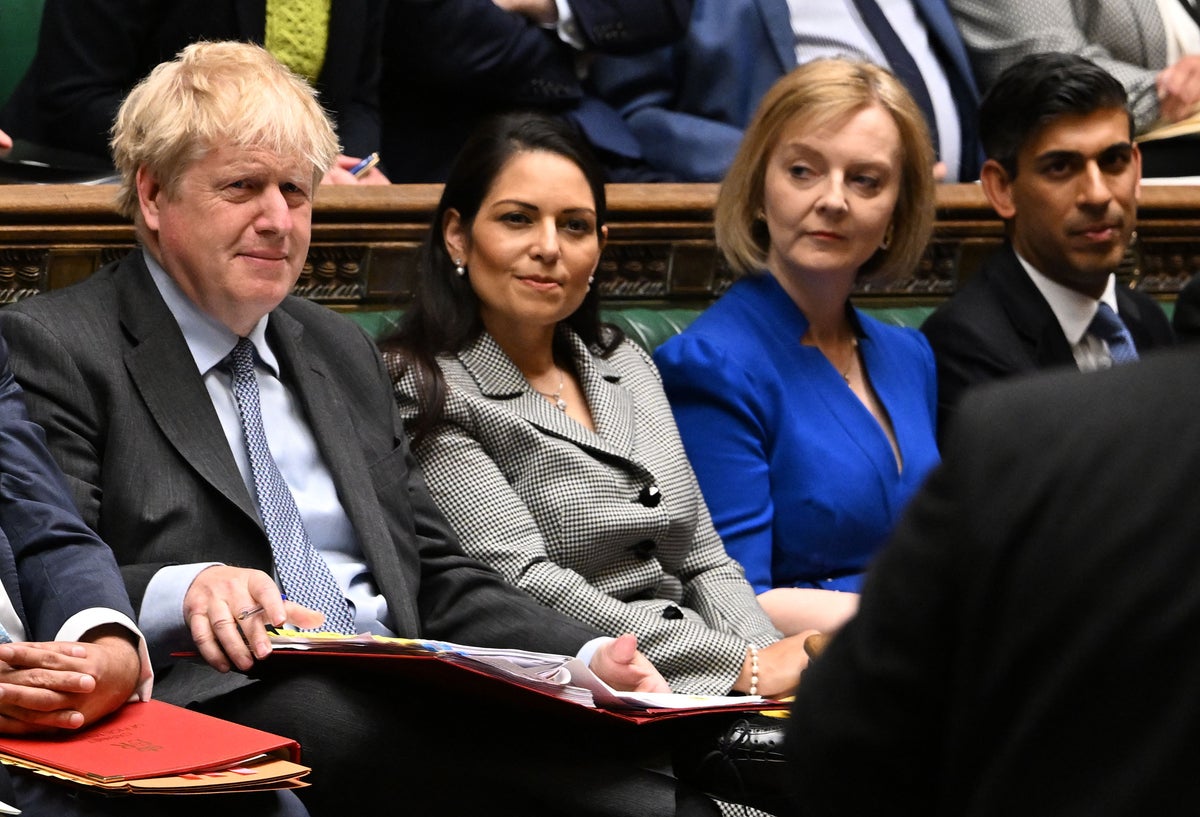
Boris Johnson has defended “draconian” Home Office plans to use electronic tags on asylum seekers arriving in Britain across the Channel on small boats or in lorries.
Despite campaigners warning that the policy would see people who have fled conflict treated as “criminals”, the prime minister said it was essential that people could not simply “vanish” after arriving in the UK.
Mr Johnson also insisted that the government would press ahead with its contentious policy of deporting some asylum seekers to Rwanda, after ministers were forced to abandon the scheme’s inaugural flight on Tuesday evening when last-minute legal injunctions were issued following an intervention by the European Court of Human Rights.
The Home Office said that the 12-month tagging pilot – which will apply to adults who have travelled to the UK via “unnecessary and dangerous routes” – will test whether the scheme helps to maintain regular contact with asylum claimants, and whether it results in their claims being processed more efficiently.
It will also collect data on how many people abscond. If the conditions are breached, asylum seekers may be considered for detention and removal, become subject to administrative arrest, or be prosecuted.
Those tagged will have to report in person to the authorities on a regular basis, and may be subject to other conditions, such as a curfew or an “inclusion or exclusion zone”, meaning they are banned from leaving or entering specified areas. Failure to comply could see them returned to detention or prosecuted.
Defending the plans on Saturday, Mr Johnson said: “This is a very, very generous, welcoming country. Quite right, too. I am proud of it, but when people come here illegally, when they break the law, it is important that we make that distinction.
“That is what we are doing with our Rwanda policy. That is what we are doing with making sure that asylum seekers can’t just vanish into the rest of the country.”
He spoke after it was revealed that the pilot scheme – branded “draconian and punitive” by critics – had begun to be implemented on Thursday.
On a visit to Wakefield, ahead of next week’s crucial by-election, the Labour leader Sir Keir Starmer accused the prime minister of “chasing headlines” with the policy.
“What I want is a serious response, because nobody wants these journeys across the Channel to be made, these perilous journeys,” he said.
“Everybody wants to clamp down on the gangs. That requires grown-up work with the French authorities, and upstream work to actually tackle these gangs. You don’t do that if you’re a government that is asking the National Crime Agency to make cuts.”
Speaking to reporters at RAF Brize Norton after returning from an unannounced visit to Kyiv, Mr Johnson also said that ministers remain confident that the policy of deporting aslyum seekers is lawful.
Earlier this week, the government was forced to abandon the first £500,000 taxpayer-funded flight to Rwanda just minutes before it was scheduled to depart, after a handful of migrants were granted a legal reprieve. Fewer than ten asylum seekers were due to board the aircraft.
Mr Johnson said: “Every single court in this country said that there was no obstacle that they could see. No court in this country ruled the policy unlawful – which was very, very encouraging.
“There was this weird last-minute hiccup we had with Strasbourg. Let’s see where we get with that. I have read some interesting legal commentary about that. But we are very confident in the lawfulness of what we are doing, and we are going to pursue the policy.”
On Wednesday, Priti Patel, the home secretary, said officials at the Home Office were already working on plans for the next flight, but the government has declined to give a time frame.







